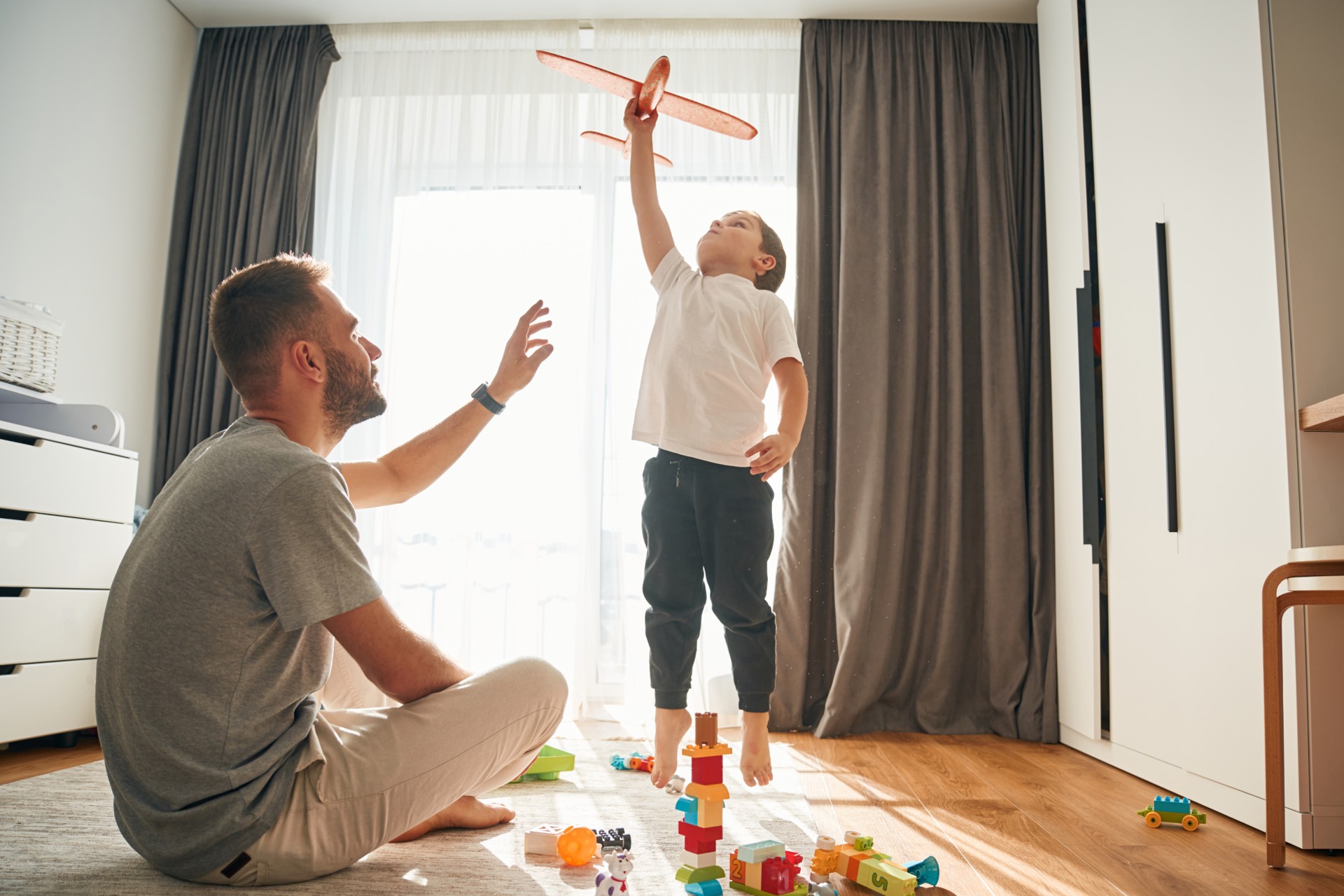Family Life
4 min Read
How to make the most out of play time

December 10, 2023
Family Life
4 min Read

December 10, 2023

A George Bernard Shaw quote recently came across my X feed. It read “we don’t stop playing because we grow old; we grow old because we stop playing.” This resonated with me because my fear of growing old prematurely — as a result of reading and believing it —became a reality. When my kids were younger, I took on the teaching role and enjoyed interacting with them as they learned through indoor play. My husband, on the other hand, was more comfortable having them perched on the souls of his feet, arms outstretched, while he extended his legs into the air and they howled with pleasure. As they grew older, they interacted more with their friends than with us. Now when I see them play charades with their friends, for example, I am reminded about the power of play and how it is a key way for us humans to connect. Here are some things to keep in mind about the importance of play and why you might want to fake it until you make it.
Venture Out of Your Comfort Zone
Even if you’d rather take on the challenge of supervising homework than building a fort, push yourself. Let your child take the lead if it doesn’t come naturally to you. Try to abandon your vision of the correct steps towards building a fort and let your child learn through trial and error while you assist. Then go inside the fort together with a flashlight and read his favourite book together. You may be surprised at how much you enjoy this activity after all.
Be Spontaneous
It’s difficult to switch gears from being the everything-neatly-in-its-place parent to that of being playful and loose. But if your child sees you as being flexible and willing to indulge in some playfulness — even when the kitchen is a mess — she will likely be more willing to stop what she is doing to spend time with you as she grows older.
Bring Your Inner Child Out to Play
Even though your inner child may be deeply buried inside of your adult self, seeing the world through the eyes of your child is almost like getting to live your life over again. So, try to see this as a gift and work towards connecting not only with your child but a younger version of yourself.
Call on Creativity
As we get older, we often feel more inhibited, more aware of others watching or judging us. This tends to stifle our creativity and push us along a more conventional path. When the opportunity presents itself, try to let your guard down and, as the saying goes, “dance as if no one is watching.” Get in touch with your creative side without your child, too — try a cooking or pottery class, for example, with your partner or a friend.
Quality Over Quantity
Twenty minutes of intense engagement has much more long-lasting and far-reaching effects than two hours of sitting side by side staring at separate screens.
A Family that Plays Together Stays Together
Playing together creates happy memories that will keep your kids coming back!
Preschoolers
Preschoolers are naturals at play. A large cardboard box can become a hiding place or a house. Sheets and pillows, an indoor tent and paper with markers can keep them well engaged. They’re pretty much game for anything, especially when they have you by their sides.
School Age
School-aged kids are more likely to enjoy role playing and fantasy play. Dressing up in their favourite super hero outfit or even in old clothing from a dress up box can be the answer to a cold day spent indoors. Despite this seeming like a difficult or tedious chore at first, you can learn a lot from engaging with your children in role playing. They will often re-enact situations happening in real life which helps you understand their inner thoughts even more.
Teens
By the time your child becomes a teen, he will likely have begun to feel more inhibited and less inclined to engage in fantasy play, other than when online. Organized play such as golf — indoor or out — a chess or other board game or basketball, may be more in keeping with what he or she considers play time. However, watch your teen with her friends to see how playful they can still be with one another and encourage most of this behaviour – even when it appears silly.
Originally published in ParentsCanada magazine, Nov/Dec 2016.